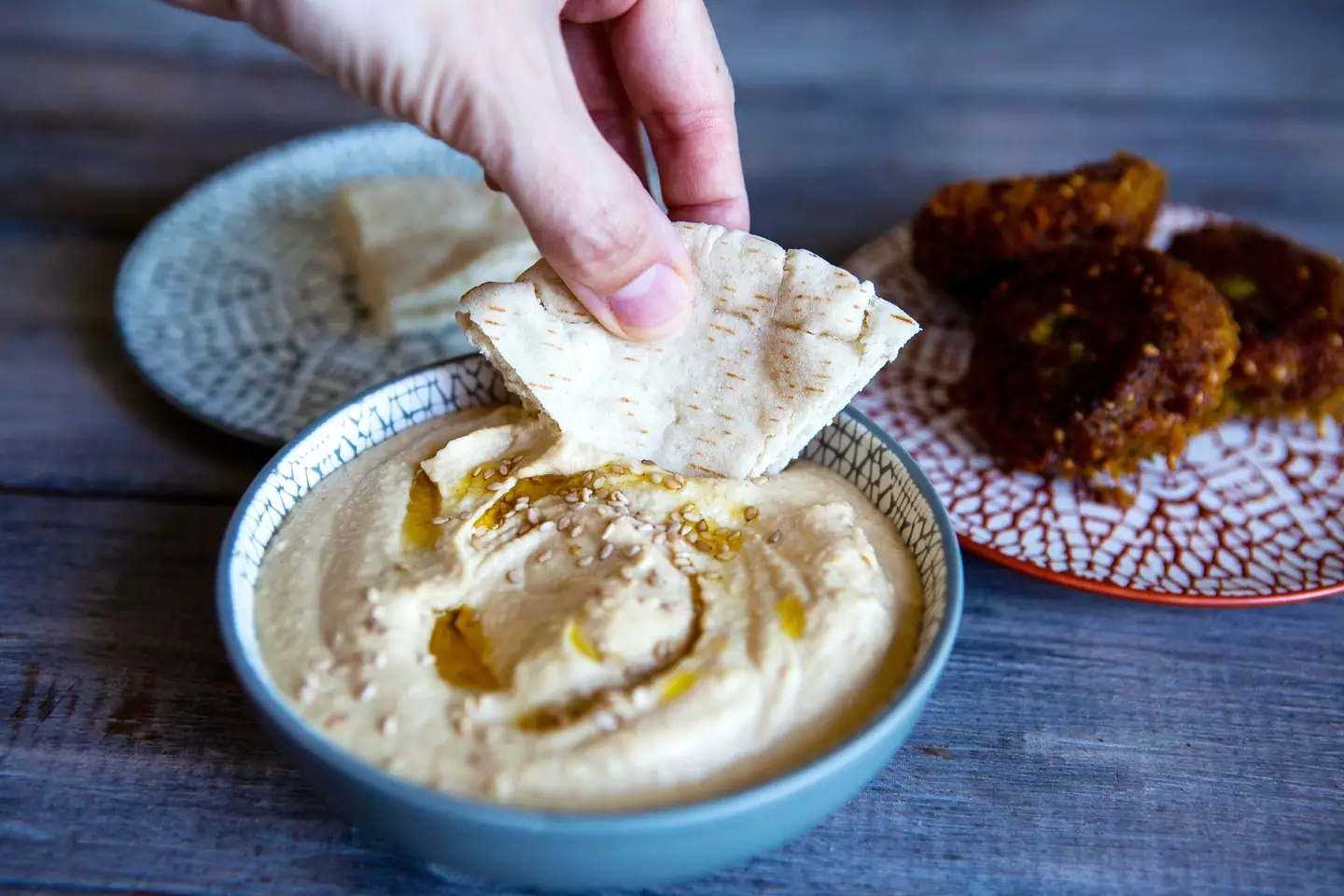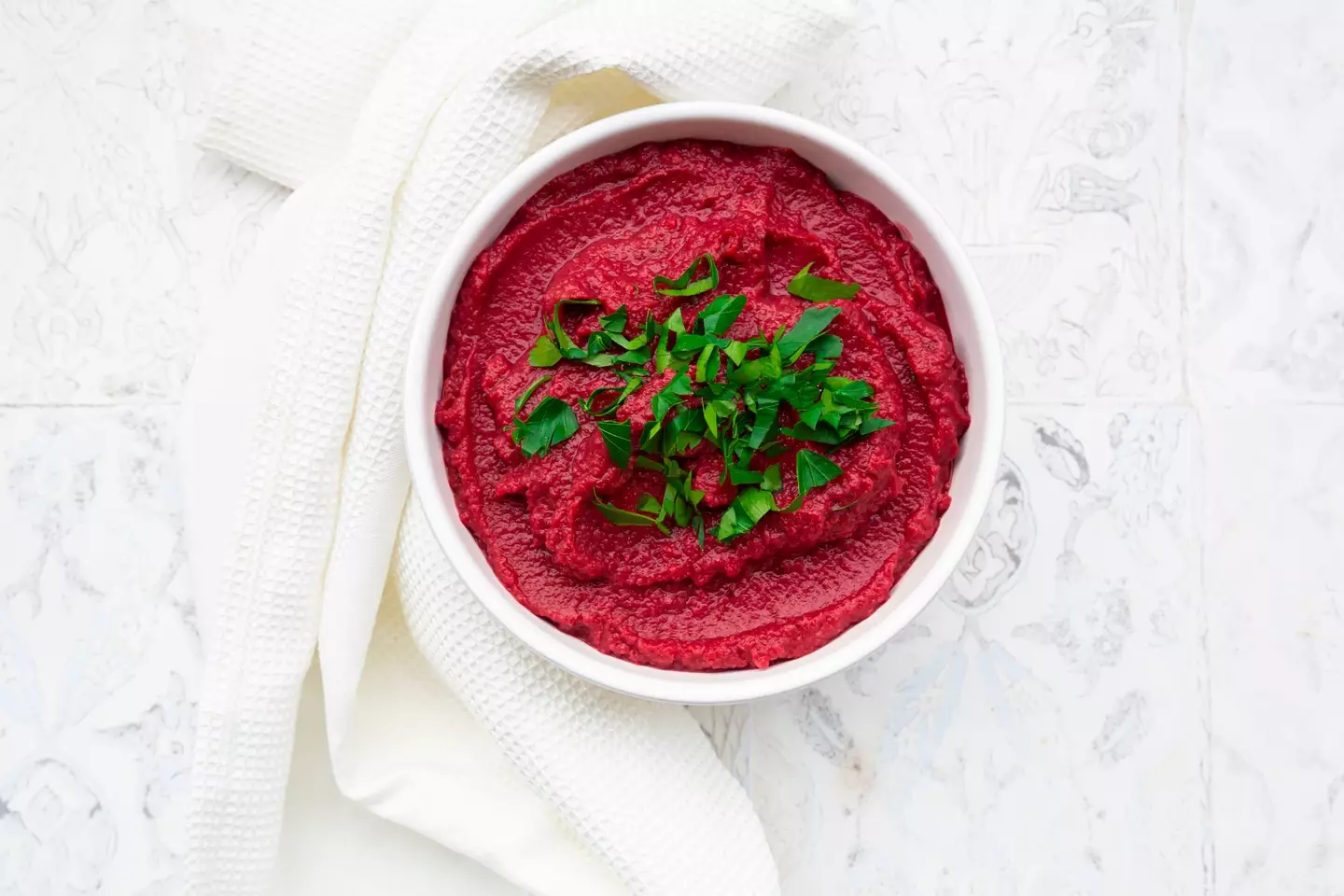
Houmous, once the preserve of the strictly middle classes, seems to have rocketed in popularity in recent years.
It’s cheap to buy and simple to make: all you need is chickpeas, tahini, garlic, olive oil, a spritz of lemon and a blender, and you’re away.
As dips go, it’s a pretty versatile one, and it has just enough protein in it to move the needle on your macros.
But, as with all things innocuous, someone’s seen fit to warn about its potential dangers.
Advert
Many of us are particularly careful when it comes to eating up meat, fish and dairy, but it seems we may want to exercise the same caution with the popular dip.

Typically, storage instructions on most packets of houmous warn that, once opened, it should be consumed within two days. Sometimes it might say 'two to three days' instead, but your window isn't huge either way.
But while you might be tempted to stretch it beyond that for the sake of finishing up last weekend's picnic spread, one expert explained you might regret playing loose with the rules.
Speaking to The Telegraph, University of Leicester microbiologist Dr Primrose Freestone said: “The thing is, once you open the lid, airborne bacteria will start to settle on top of the dip. It is then only a matter of time before contamination by germs happens and food poisoning becomes a possibility."
Dr Freestone explained that the microorganisms in dips receive a ‘shot of oxygen’ as soon as we open the package and then it’ll ‘grow rapidly’.
Put simply, once the lid’s off, any bacteria present in or introduced to the houmous will get the oxygen it needs to start multiplying. Even if you can’t see it, it’s there. Refrigeration will slow the bacterial or fungal growth down, but it won’t stop it.
Of course, if it’s left outside the fridge, the bacteria and fungi will find it very easy to develop.
Food poisoning is no joke. Around 2.4 million people in the UK will be struck down with it each year, according to UK Research and Innovation, and its consequences can range from mild to fatal.
Particularly at-risk groups include pregnant women, small children, the elderly, and people with chronic illnesses.
Dr Freestone urges those within vulnerable groups to be particularly careful with dips that may have been stored incorrectly. Listeria, one of the common food poisoning bacteria, can develop in just 48 hours.

Many of us, of course, will have been playing fast and loose with expiry dates, especially if the grub in question doesn’t look like it’s going off. Freestone says anyone getting away with doing this without experiencing a funny gut must have a ‘robust immune system’.
To keep your houmous fresh, stick it in the fridge immediately and don’t decant it into another vessel.
Freestone explained that any colour changes, separation, or sourness should prompt an immediate binning.
